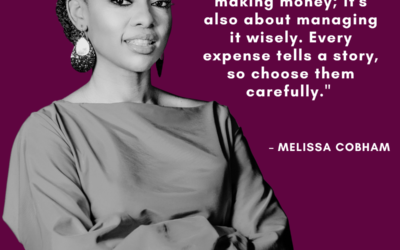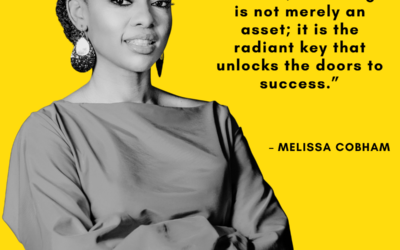Lately, the topic of becoming a director has been stealing the spotlight in my conversations.
I get it…the allure of stepping into a directorship role is undeniably enticing. From leadership development and networking to mentorship and even contributing to a cause, there’s an array of compelling reasons to consider taking a director’s seat. It’s a chance to refine your leadership skills, broaden your network, and make a lasting mark while sharing your unique perspective on matters that matter.
I want to pause for a moment…..
Before you give a resounding ‘yes’ to that directorship offer, consider the 3Rs: Reason, Risk, and Responsibility. These three pillars are the keys to unlocking the true value of this opportunity, ensuring you’re well-prepared to make an informed decision that aligns with your aspirations and objectives.
Reason
What Truly Motivates You?
Your journey into the director’s chair should start with a clear understanding of your personal motivations. What drives you to take on this responsibility? Does it align with your values and long-term goals? Reflecting on these aspects is crucial as they’ll serve as your compass in navigating the world of directorship. Each decision you make, each contribution you offer should be guided by a sense of purpose that resonates with your core values.
Mission Alignment Matters
Directors play a pivotal role in steering the company’s mission forward. Ask yourself: are you genuinely interested in, or better yet, committed to the mission of the company you’re considering? A shared mission is the glue that binds directors together, ensuring a unified vision and collective effort. If the company’s purpose resonates with your own aspirations, you’re more likely to contribute effectively and find intrinsic fulfillment in the role.
Beyond the Bottom Line
While financial rewards can be enticing, consider whether you’re prepared to dedicate your time and expertise, even in the absence of monetary compensation. Volunteering your services showcases a deeper dedication to the company’s success and highlights your commitment to making a meaningful impact.
Skills to Share and Develop
As you consider the role, identify the skills you’re eager to share and the areas you aim to develop. Every director brings a unique skill set to the table, and being clear about what you bring and what you hope to gain can contribute to your effectiveness in the boardroom.
My personal journey as a director taught me the profound significance of understanding my reasons. There were times when I believed my skills alone were an asset to the company, but I didn’t fully consider the alignment of values. This oversight led to a less-than-optimal experience and eventually prompted my departure. While I seemed to fulfill my directorial duties on the surface, the company wasn’t benefiting from the synergy of shared values, and I unintentionally stole away my own joy.
Before you utter that decisive ‘yes,’ take the time to unravel your motivation and ensure it’s reciprocated. Becoming a director should be a mutual journey of growth and alignment, a venture that empowers you while empowering the organization.
Risk
Let’s get real, risk is an inevitable companion on our journey through professional life. As one of my mentors often states, “If You Don’t Risk Anything, You Risk Everything.” While this adage serves as an encouraging nudge towards embracing opportunities, it’s worth noting that knowledge is the compass that helps us chart our course amidst the waves of uncertainty. It’s our understanding that separates those calculated leaps from blind leaps into the unknown.
Becoming a director comes with a set of unique challenges that require careful consideration. For starters, directors are tethered by legal and regulatory obligations that carry personal liability if not approached with diligence. Navigating intricate legal frameworks and ensuring unwavering compliance can be an arduous task. Moreover, the specter of reputational risk looms if the company faces controversies or financial turmoil, amplifying the pressure of decision-making.
Let’s not forget that as a director you will often find yourself making high-stakes decisions that will ripple through the company and its stakeholders. The gravity of these decisions can be accompanied by stress and uncertainty that will be challenging to even the most seasoned professionals.
With directorship your reputation can become interwoven with the company’s performance. When setbacks occur, you will be held accountable, impacting not just the company but your personal standing as well. This challenge will be compounded when resources are limited, potentially hindering any director’s ability to access vital information necessary for making informed decisions.
Personal and professional sacrifices also enter the equation, as a director’s role demands investments of time, energy, and personal pursuits. These sacrifices are accompanied by heightened accountability and scrutiny. As a director, you will be under the watchful gaze of shareholders, stakeholders, and the public, underscoring the paramount importance of transparency and accountability in all your actions.
It doesn’t end there…..the risk of finding oneself in a conflict of interest scenario is very real. Balancing these situations without compromising personal integrity or the company’s interests presents an ongoing challenge. A director’s role necessitates the delicate art of navigating potential conflicts, ensuring decisions align with the company’s best interests despite personal or professional connections that may tug in different directions.
It may appear ominous, but as I mentioned earlier, while risk is an inescapable facet of directorship, knowledge serves as a guiding beacon, illuminating the path through potential pitfalls.
Before uttering that affirmative ‘yes’ to a board position, arm yourself with information. Familiarize yourself with the company’s articles and bye-laws, comprehend directorial expectations, and learn the intricacies of resignation protocols.
Don’t be shy to dive into the financials, grasp your obligations, and uncover any disclosed or undisclosed contingent liabilities. Understand the company’s operations—do they possess the necessary resources to reasonably implement internal controls to safeguard their assets?
Don’t hesitate to reach out to past directors, gathering insight from those who’ve walked this path before. Scrutinize the current board, assessing your compatibility with its members. Probe for any potential conflicts of interest or roles that might clash.
Undoubtedly, the risk associated with directorship is formidable. The considerations are numerous, and among them, professional indemnity insurance stands as a significant factor that deserves thorough contemplation.
Responsibility
The realm of a director’s responsibility is dynamic, shaped by factors like company size and industry dynamics. Amidst this diversity, a central theme remains unwavering; the duty to make decisions that serve the company as a cohesive entity. This pivotal role encompasses diverse tasks, from contributing to long-term objectives to ensuring effective communication with stakeholders—shareholders, members, and broader communities alike.
Delving deeper into a director’s responsibility reveals a foundational pillar: “governance.” Governance acts as a compass that guides directors toward the company’s true north. It ensures compliance with laws, regulations, and industry standards. By establishing robust internal controls and mechanisms, directors become the sentinels of the company’s performance, continuously monitoring its course, and making necessary adjustments.
Embracing governance aligns with the fiduciary duty directors bear—a duty that demands more than financial acumen. It necessitates an unwavering commitment to ensuring the company’s adherence to all legal requisites. From filing essential reports and honoring tax obligations to upholding labor laws, directors play a pivotal role in preserving the company’s ethical and operational integrity.
In the current landscape of cross-border trade and global business operations, the rules of engagement have grown more rigorous. Directors now shoulder a weightier responsibility, charged not only with the obligations set forth by the Companies Act but also with adhering to the Foreign Account Tax Compliance Act (FACTA), the Financial Intelligence Unit of Trinidad and Tobago (FIU), the Board of Inland Revenue (BIR), The Trinidad and Tobago Securities and Exchange Commission (TTSEC), and more. In these realms, vigilance extends to breaches of anti-money laundering laws, preventing terrorist financing, ensuring investor protection, and championing policies related to sustainability, diversity, and inclusion.
Before accepting a directorial role, maintain a vigilant focus on compliance requirements to uphold ethical stewardship. Missteps send reverberations far and wide, underscoring the multifaceted and profound essence of a director’s responsibility.
The intention of this article isn’t to paint a bleak picture, but to share the insights I’ve gathered over the years. As I contemplate directorship, I hold three core objectives close: giving back, boosting my personal brand, and fueling my drive for continuous improvement. Amidst these aspirations, safeguarding my reputation remains paramount.
I make it a practice to diligently assess opportunities before giving my assent, and I urge you to adopt the same discerning approach.
Cheers











